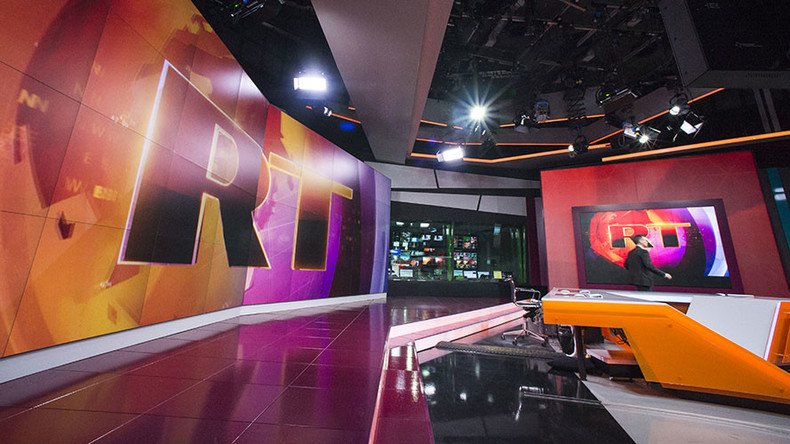'Attacking RT for 'Questioning More' is an attempt to shoot the messenger'

A report shown to the UK Parliament by one former NATO and one MoD think tank employee posits that RT is waging an info-campaign aimed at undermining both the UK and EU. John Laughland of the Paris-based Institute of Democracy and Cooperation disagreed.
The first thing to say about this report is that its authors are guilty of the same professional bias of which they accuse RT and Sputnik. Ben Nimmo is a former employee of NATO, while Dr. Jonathan Eyal is an employee of the British Ministry of Defence, of which RUSI is the official think-tank. Like any other person working in western military structures, they have a vested interest in exaggerating and misrepresenting the Russian threat.
Neither Nimmo nor Eyal has any independent professional background outside the military organizations for which they work. In spite of his claims to have worked as a journalist, Nimmo has no detectable journalistic portfolio. Eyal spent over 20 years at RUSI after a very brief academic career and he has no independent or authoritative books to his name apart from RUSI publications. Instead, both authors have in the past misjudged and misrepresented the actions of the Russian state, such as in March 2015 when Ben Nimmo argued that Russia was about to invade the Baltics.
They argue that RT is biased and that it is part of a Kremlin campaign to achieve various foreign policy goals. They make a highly fanciful link between RT's alleged support for Jeremy Corbyn and an alleged Kremlin desire to support British nuclear disarmament. Instead of their condemnation of RT for its supposed failure to respect journalistic ethics, they ought to practice what they preach: the claim that the Kremlin is actively pursuing a policy of British nuclear disarmament should be backed up by evidence, not by supposition and innuendo. Where is this evidence? A few graphs are not sufficient to show that Mr Putin is dictating editorial policy on UK nuclear submarines to the journalists at RT. If their claim is not so backed up, then it does not deserve to be taken seriously. And why do the authors make no comment on President Obama’s repeated statements that Britain should remain in the EU? Is that not an example of a foreign state trying to influence “the UK’s domestic debate on key issues”? What is sauce for the goose should be sauce for the gander.
They allege that publicly funded media outlets are under a greater obligation to respect neutrality than privately owned ones. Who says? The standards set by OFCOM for electronic media in the UK are not replicated even in other EU states, such as France, which impose no obligation to adhere to political neutrality on their broadcasters, public or private. Even the authors of this report must be aware of the virulent propaganda conducted by other public broadcasters around the world like Al-Jazeera or private ones like Fox News. The authors complain that what they call "Russian propaganda" is succeeding in getting across its message but no one is obliged to watch these channels. No doubt one could find some fault with RT’s editorial policy but the fact is that, as people increasingly lose confidence in the so-called neutral public media in the West, attacking RT for "questioning more" is nothing but a rather pathetic attempt to shoot the messenger. There is now a plurality of views in the international TV arena and the authors should get used to the fact.
The final passage of the report, concerning Russian views about NATO, contains a good deal of material for discussion. But these paragraphs are above all notable for their author's extreme servility to the NATO side of the argument. One after another, they claim to rebut Russian arguments, just as NATO itself does on its own website. In what sense, therefore, can these two authors pretend to be "independent" or be writing in a "personal capacity"? They write as the NATO spokesmen they are, and with the same willful blindness towards NATO's numerous egregious mistakes and failures which one would expect from paid propagandists. For such people to accuse RT of bias is a case of the pot calling the kettle black.
John Laughland
The statements, views and opinions expressed in this column are solely those of the author and do not necessarily represent those of RT.












